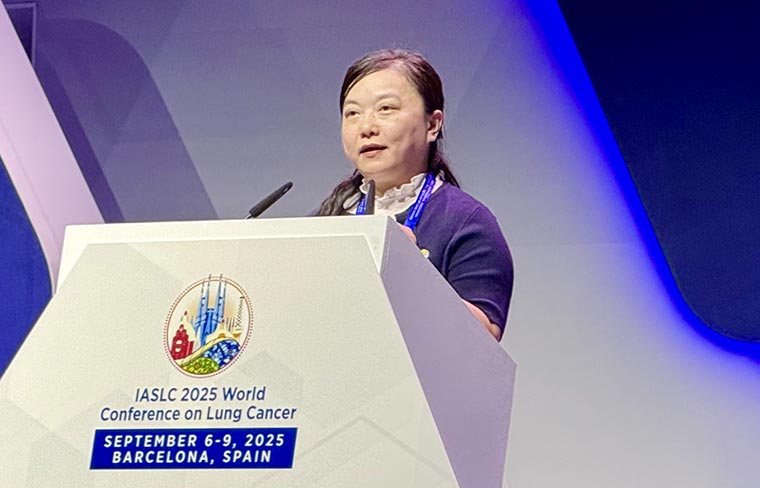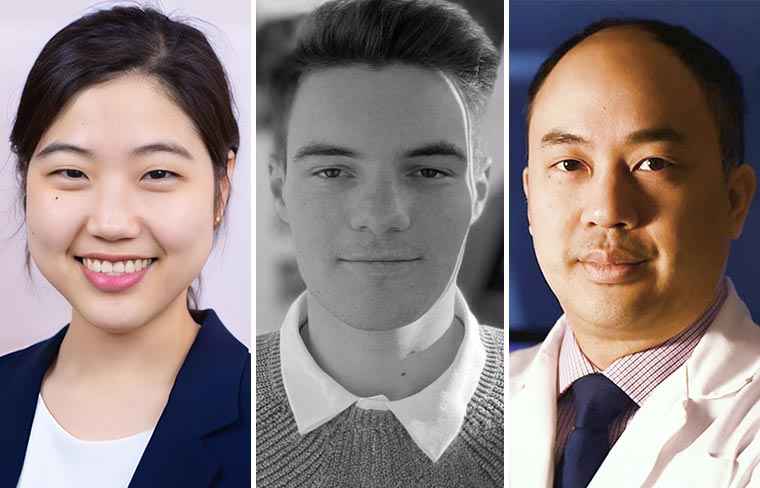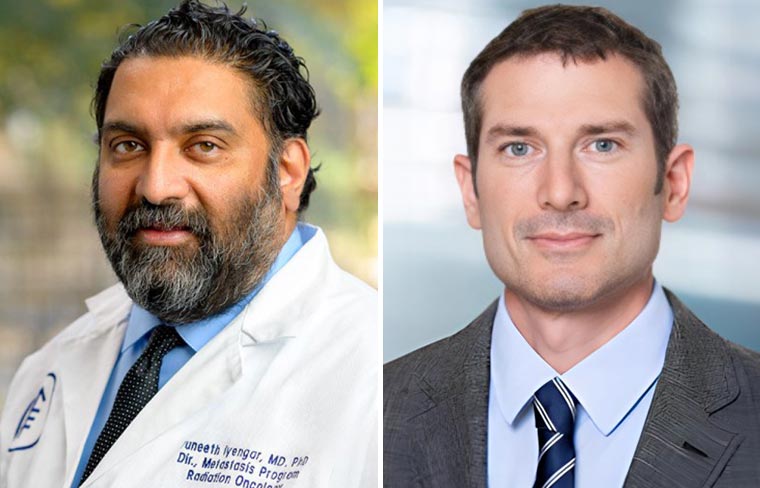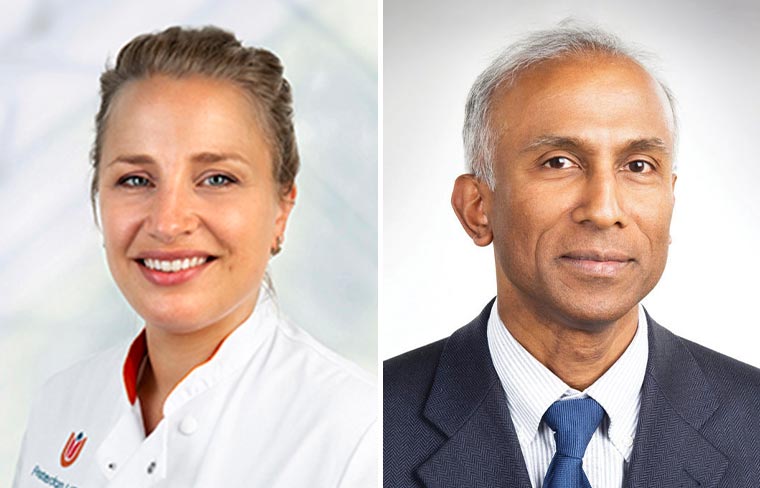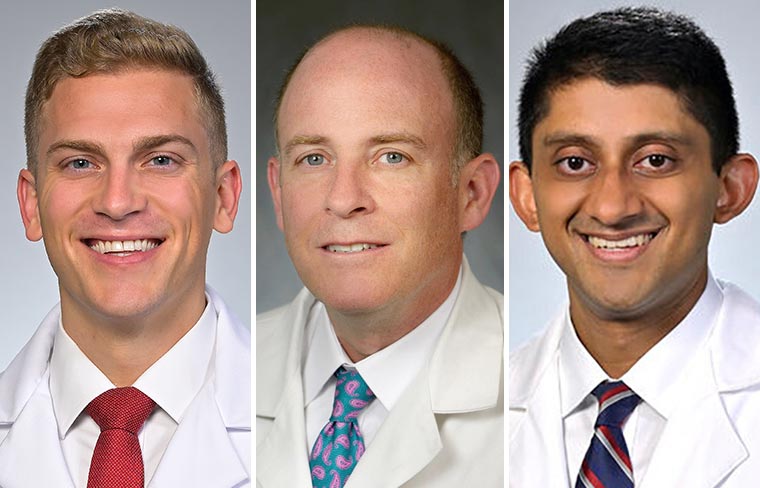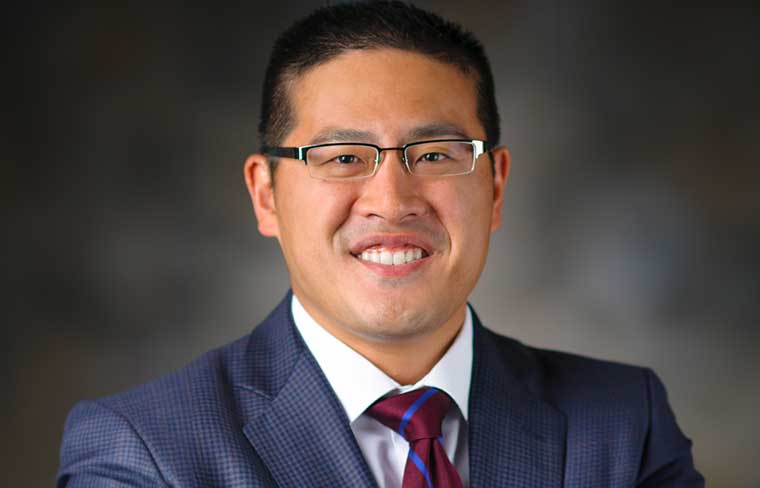-
Interim NADIM ADJUVANT Data Suggest Adjuvant Chemo-IO May Reduce Recurrence Risk in Patients Following Complete Resection
-
Final FLAURA2 OS Data Show Osimertinib Plus Chemo Offers Benefit Compared with Monotherapy
-
Potential Impact of GLP1-RAs on TKI-induced Weight Gain in Patients with NSCLC
-
No “Known” Risk Factors: The Health Consequences of Radiation Therapy
-
Discussion Covered Updates, Strategies, and Controversies in Lung Cancer Staging
-
No PFS, OS Benefit Seen in Final Results from PACIFIC-2
-
WCLC Attendees Hear Preview of Proposed Changes for the 9th Edition of the TNM Staging Classification for Thoracic Cancers
-
Treatment of Immunotherapy-Related Dermatologic Toxicities: An Interview with Dr. Mario Lacouture
-
A Holistic Approach to Patient Care
Radiation Oncology
-
HypoRT with Concurrent Chemo Shows Favorable Safety Profile
Dr. Nan Bi said further investigation of HypoRT with immunotherapy is warranted based on these findings and potential immune-sparing benefits.
-
Rethinking Radiation: Adopting Hypofractionated Radiation Therapy
Drs. Puneeth Iyengar and Edward Christopher Dee discuss the potential clinical and environmental benefits of hypofractionated radiation therapy, along with the barriers to broader adoption.
-
The Elephant in the Room: Addressing Oncology’s Carbon Footprint
From travel-related emissions to medical waste, Drs. Puneeth Iyengar and Edward Christopher Dee discuss the environmental impact of radiotherapy.
-
No “Known” Risk Factors: The Health Consequences of Radiation Therapy
Heidi Nafman-Onda, founder of The White Ribbon Project, shares her experience discovering and grappling with the long-term effects of radiation therapy and addresses the need for coordinated survivorship care.
-
Artificial Intelligence in Thoracic Radiation Oncology: Treatment, Challenges, and Future Directions
In part 2 of our look at AI’s impact on radiotherapy, Grace Lee, MD, Fridolin Haugg, MSc, and Raymond H. Mak, MD, discuss how AI may be leveraged when delivering radiotherapy, including improving our ability to predict treatment response and adverse events.
-
Artificial Intelligence in Thoracic Radiation Oncology: Patient Evaluation and Treatment Planning
In part 1 of a 2-part article, Grace Lee, MD, Fridolin Haugg, MSc, and Raymond H. Mak, MD, explore the possibilities and limitations of AI applications.
-
Guideline Taskforce Chairs Discuss Need for Caution, Multidisciplinary Decision-Making When Using Definitive Radiotherapy for Oligometastatic NSCLC
In an interview with ILCN, Drs. Puneeth Iyengar and Matthias Guckenberger said despite a lack of phase III data in this space, science-based recommendations are needed to optimize multimodal therapy.
-
Combining SABR with Immunotherapy to Improve Outcomes in Early-Stage NSCLC
Drs. Famke L. Schneiders and Suresh Senan explore evidence that supports the use of radiotherapy to prime the immune system to maximize the benefits of immunotherapy.
-
Patterns of Failure after PACIFIC: How to Address Disease Recurrence after Chemoradiotherapy and Immunotherapy
Dr. Cole M. Friedes and colleagues analyzed progression patterns in patients after receiving the PACIFIC regimen and showed that many patients are candidates for further ablative treatments.
-
Data Support IMRT as Standard of Care for Locally Advanced NSCLC
During the 2023 World Conference on Lung Cancer, Dr. Stephen Chun said long-term data show intensity-modulated radiation therapy offers an overall survival benefit and reduced toxicity compared to 3D conformal radiation therapy.







